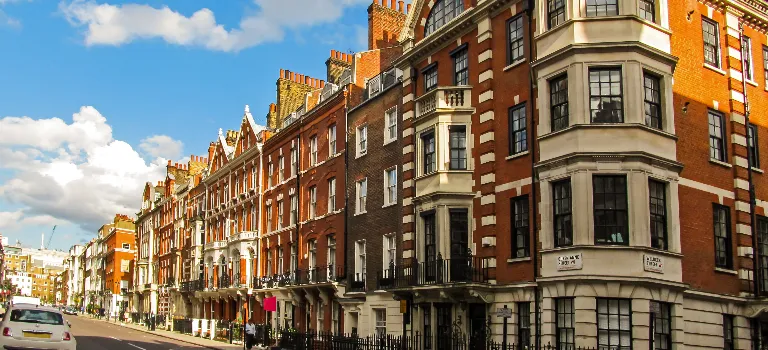Property buyers in London and across the UK (except Scotland) make an important decision when buying a new home. Whether a property is freehold or leasehold will determine the rights of its new owner and the dues that are payable. While freehold properties give buyers complete ownership of the building and the land it sits on, leasehold buyers must pay ground rent, maintenance and service charges to the freehold owner.
In addition to the extra expenses, leases can also impose conditions that restrict owners from making physical changes to the property. Sometimes, having pets or even drying clothes on the balcony can also be subject to lease terms. Excessive leasehold terms can make selling such properties difficult. Therefore, buyers need to be completely informed and updated about leasehold clauses and the laws around them.
How long are properties leased for in the UK?

Property leases generally range between 99 to 125 years to start with but can be extended to 999 years. Homebuyers, especially those investing in resale properties, should check how many years are pending on the lease to be eligible for mortgages. Properties with less than 80 years left on their lease find it challenging to get mortgages and incur a high cost for renewal. Another pre-condition to lease renewal is that the buyer needs to hold the property for two years before applying for an extension.
What is ground rent, and how is it calculated?
Ground rent is the annual fee paid by the leaseholder to the freeholder for living on the land on which the property stands. While the amount is generally a peppercorn figure (like £100 to £250 or 0.1% of the property’s market value), leaseholders should look for terms on potential rent increases, payment frequency and other service charges.
What is covered in service and maintenance fees?
From communal gardens and elevators to lifestyle amenities like swimming pools and gyms, most leasehold properties are within larger apartment blocks, offering residents many shared services. Costs incurred in the maintenance and upkeep of these facilities are shared among the respective leasehold owners within the community. Although unexpected damage and repair works are also included in this, leaseholders have the right to know about any inclusions that cost over £100/year and for projects that could last for over a year.
Can a freeholder take advantage of a leaseholder?

While the UK’s fair and transparent property policies restrict any unfair practices, there have been instances where developers have sold the freehold status to third-party firms known to escalate the cost of transfer to the legitimate leaseholders. However, all leaseholders have the right to seek financial transparency (bills, receipts and other supporting documents) about the collection and use of funds. Unhappy or unsatisfied leaseholders can also use their right to management or the right to appoint a new manager to oversee maintenance and other services.
How do you acquire the freehold status of leased properties?
Leasehold owners have the first right to buy the freehold status of their respective properties. However, since most leasehold occupants live in an apartment building, you will need to get at least half of all the other leaseholders on board to acquire the freehold status from the developer or any third party in charge of the freehold.
After getting the majority on board, the first step is to serve the freeholder with a Section 13 Notice. In addition to the base price of buying the freehold, leaseholders need to pay a surveyor for accurate valuation, legal conveyance fees, the current freeholder’s legal fees and SDLT if the freehold price exceeds £125,000.
Leasehold and Freehold Reform Act 2024
Passed by Parliament in May last year, the Leasehold and Freehold Reform Act is aimed at protecting the rights of leaseholders against a system which is perceived as feudal. While the ultimate goal is to abolish freehold for all new properties, many of the measures outlined in the Act require secondary legislation to be implemented successfully. Here’s the most recent update provided by the government on the inclusions to strengthen leaseholder rights.
Whether you plan to buy, sell or rent a property in the UK and its sought-after capital, Benham and Reeves is the ideal partner for all your property needs. Contact us to learn more about leasehold and freehold properties.
International offices
















